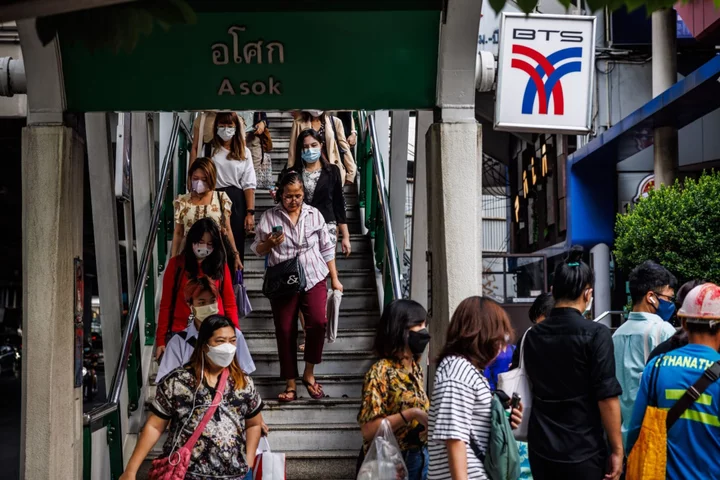The Pheu Thai Party, which leads Thailand’s coalition government, asked critics of its proposed economic stimulus plan not to jump to conclusions before seeing the program’s details.
The party’s defense came amid growing calls from central bankers and economists for the government to scrap a proposed 560 billion baht ($15.1 billion) cash handout program. The argument of those opposing the plan was that the economy already had recovery momentum and doesn’t require additional stimulus.
“Even if some academics view that the economy is improving, so it may be unnecessary to implement this policy, the truth is many people, especially those live in provincial areas, are still facing liquidity problem and have no money in their pockets,” Pheu Thai said in a statement posted Monday on X, formerly known as Twitter.
Opposition to Prime Minister Srettha Thavisin’s ambitious plan to give most Thais a one-time handout of 10,000 baht is growing. A group of economic experts, including two former central bank governors Veerathai Santiprabhob and Tarisa Watanagase said the mega project “will do more harm than good” as it risks stoking inflation and hurting long-term fiscal discipline.
“This project is not throwing out money to gain votes,” Pheu Thai said in the statement. The “party, government and cabinet realized that we need a concrete way to help people, so they have money to spend, which will help create the great money circulation in our economy.”
The digital wallet program — set to be rolled out in the first quarter of 2024 — is the main pre-election promise of Srettha’s Pheu Thai Party. Thais above the age of 16 are eligible to receive the handouts, and money is to be spent on specific goods and services around their neighborhoods and within a stipulated period.
A major economic stimulus is necessary to jumpstart the fragile economy, Deputy Finance Minister Julapun Amornvivat told reporters at a briefing on Monday, adding that the digital wallet program will also lay the groundwork for Thailand’s digital economy.
“The digital wallet project won’t create new money,” said Julapun. While funds for the program will mainly come from the government’s budget, he said authorities will be mindful of fiscal discipline.
More details will be announced by the end of this month, he said, adding those would be submitted to a panel overseeing the program’s management on Oct. 24, according to Julapun.
Permanent Secretary for Finance Lavaron Sangsnit said he will discuss with the Bank of Thailand to ensure fiscal and monetary policies are synchronized in the same direction.
“We don’t ignore stability,” Lavaron said. “But we need to talk about problems we are facing when economic growth is below potential. A growing economy equates to people’s well-being and higher revenue.”
--With assistance from Pathom Sangwongwanich.
(Updates with comments from a Deputy Finance Minister from 7th paragraph.)

